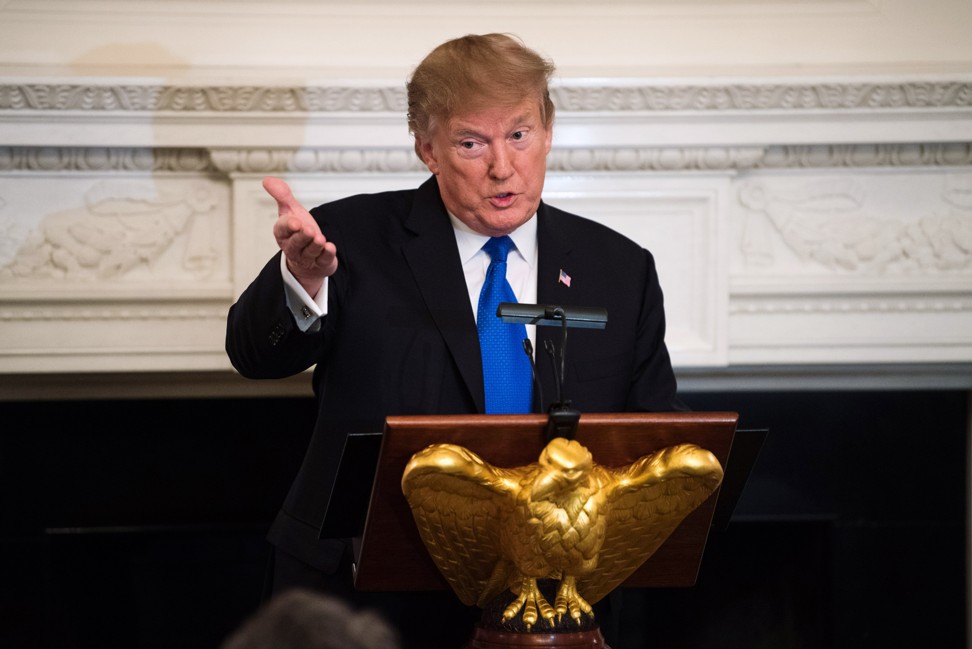
Cause for jubilation is very much exaggerated as global markets are sleepwalking in unison toward a cliff’s edge. Here’s why
- The global economy has slowed to its lowest growth rate since the Global Financial crisis, yet is awash with liquidity and debt, both public and private
- Credit quality is sliding and the financial system is vulnerable
This may sound too pessimistic, at a time when the global economic outlook appears to be brightening on hopes of a US-China trade deal, a generalised shift toward dovish central bank policies and some pickup in China’s economy.
But such optimism is unjustified if we are to believe the IMF. The case it makes for caution in a trilogy of recent reports – the World Economic Outlook, the Global Financial Stability Report and the Fiscal Monitor – is more than a little convincing.
What the IMF says essentially is that the global economy has slowed to its lowest growth rate since the Global Financial crisis, yet is awash with liquidity and debt, both public and private. Credit quality is sliding and the financial system is vulnerable.
The IMF’s latest findings are based on its “new framework for comprehensive assessment of balance sheet vulnerabilities across financial and non-financial sectors,” and they do not make for comfortable reading.
A year ago, growth was accelerating almost everywhere and the global economy was projected to expand by 3.9 per cent in 2018. Instead, growth slowed to 3.6 per cent last year, from close on 4 per cent in 2017, and is set to drop to 3.3 per cent this year.
This is a kind of double jeopardy. Having helped create the global slowdown, and knowing that his tax cuts were buying only temporary growth, Trump now wants to boost it again by having the Fed put its foot on the monetary accelerator.
This is just the kind of behaviour that helped create the situation against which the IMF is warning. Low interest rates (not originated by Trump, of course) led to a huge surge in borrowing and bad debt while fiscal deficits are adding to the problem.

Put in blunt terms, “financial vulnerabilities are elevated in the sovereign, corporate, and nonbank financial sectors in several systemically important countries,” the IMF said. “There is a risk that strains in the financial sector could yet again be passed on to companies and households, hurting economic growth.”
So why have stock markets recovered since the big sell-off at the end of last year? It is due to growing (but questionable) optimism about US-China trade negotiations and the fact that leading central banks have adopted a more flexible approach to policy normalisation.
But this reversion to dovishness has come prematurely, when interest rate rises and quantitative tightening by the Fed and others had not had time to reduce over-indebtedness in the financial system.
According to the IMF, corporate sector vulnerabilities are elevated in about 70 per cent of systemically important countries and threaten to amplify any economic downturn.
“Debt and financial risk taking have increased and the credit worthiness of some borrowers has deteriorated,” the IMF said.
Ominously, “potential losses on non-performing loans and mark-to-market declines in the value of government bonds could result in a significant hit to capital for some banks. Insurance companies could also be hit given their significant holdings of sovereign, bank, and corporate bonds.”
Financial vulnerabilities in China remain high and the IMF suggests that authorities there face a difficult trade-off between supporting near-term growth, countering adverse external shocks, and containing leverage through regulatory tightening.
China’s importance for other emerging markets, “will continue to increase with its inclusion in benchmark indices,” the IMF said. “Portfolio flows to China are expected to rise by as much as US$150 billion by 2020 as a result of its inclusion in a global bond index.”
Flows to other emerging markets are increasingly influenced by benchmark-driven investors. The amount of funds benchmarked against widely followed emerging market bond indices has quadrupled in the past 10 years to US$800 billion.
Given the huge shift also to passive investing via exchange traded funds (ETFs) in recent years, what all this amounts to is that financial markets are obeying the herd instinct ever more strongly – and could be herding toward a cliff’s edge.
Anthony Rowley is a veteran journalist specialising in Asian economic and financial affairs

